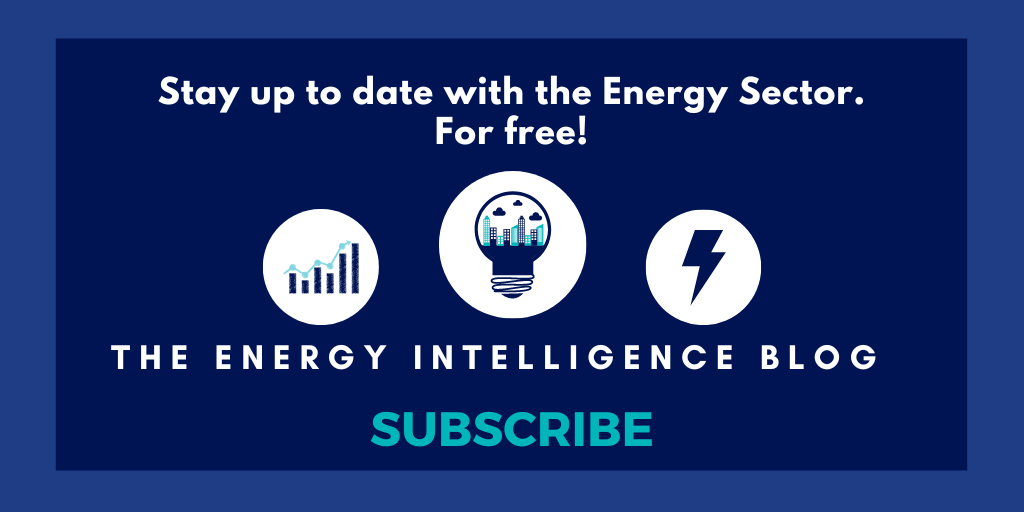It can be exciting to get a job in the energy sector but you must be ready to work extra hard. Most professionals in this sector work long hours. Some of them work 12-hour shifts while others work up to 14-16 hours daily depending on the nature and requirements of the projects. It is a demanding field due to the rising demand for energy at the consumption level.
Due to their busy schedules, many professionals in the energy sector find it harder to balance productivity with their well-being. They often find themselves with a long list of pending work. You need to use the right time management strategies and tools to help you stay productive.
In this sense, time management and productivity are critical skills for energy professionals. The energy industry is dynamic, fast-paced, and subject to constant change, making it essential to make the most of every working hour. Whether you’re involved in renewable energy, fossil fuels, or any other aspect of the energy sector, effective time management and productivity strategies can help you excel in your field.
In this article, we will explore some valuable tips to help energy professionals maximise their time and productivity.
1. Breakdown big work chunks into small portions
Each department in a company operating in the energy sector has a busy schedule. For instance, you could be working in the customer service or energy distribution department. You might have a pile of orders to supply and a large chunk of entries to make. Instead of working on one large chunk, break them down into smaller portions. Arrange them based on priorities. It helps you to stay motivated and avoid procrastination.
2. Use technology
Most professionals in the energy sector adopt technology to optimise productivity. Many stakeholders in the sector are moving towards creating smart workplaces. There is a growing need to digitalise the sector and transition it to a green energy sector. Technology such as a smart grid can help monitor usage and mitigate energy outages in real-time.
AI can be applied in the sector to create an optimised production and distribution system. It can help automate many tasks and save time required for manual input of tasks. The choice of technology to use depends on the energy sub-sector you are in.
In addition, energy professionals can benefit from various technology tools to enhance productivity. You should utilise project management software, collaboration platforms, and time-tracking apps to streamline your work processes. These tools can help you organise tasks, communicate with team members, and monitor project progress. Additionally, you should also consider automating repetitive tasks wherever possible to free up more time for critical activities.
3. Create a list of to-do things
The number of tasks that you must do daily can be overwhelming. For instance, an engineer in the energy field might have a long list of production plants that need inspection. It could be possible to forget some of the tasks even though they could be important. The secret is to create daily or weekly lists of to-do things.
It ensures you don’t forget a thing and you stay productive the entire day. Your computer or smartphone mostly has built-in software to help you manage time. You may also install simple tools for taking notes or detail-oriented software such as Asana, OneNote, and Apple Notes.
The energy sector demands a working strategy that delivers swift results. Your device could slow your productivity due to slow speed combined with distractions at work. If your device is slow, check if the cause could be limited storage space. If that’s the reason, you can clean the purgeable space to make sure the system is working smoothly. This will speed up the system and you will experience new levels of productivity with it.
4. Set SMART Goals
Setting clear and SMART (Specific, Measurable, Achievable, Relevant, and Time-bound) goals is crucial for energy professionals. SMART goals provide a framework for understanding what you need to accomplish and by when.
With well-defined objectives, you can stay focused, measure your progress, and adjust your strategies as needed. Whether your goals are related to reducing carbon emissions, increasing energy efficiency, or expanding renewable energy sources, having a clear roadmap will make your work more efficient.
Goal setting also promotes engagement and collaboration across the organisation. When energy management goals are communicated clearly and transparently, stakeholders can understand the objectives and take ownership of their role in achieving them. This creates a culture of accountability and collaboration, which fosters innovation and encourages the sharing of best practices.
5. Delegate or outsource whenever possible
A lot of professionals in the energy sector fear to delegate due to the thought that the other person might do better than them. Many others might feel the other person is inadequate for the job. Delegation enhances trust and keeps everyone engaged. It can help you manage your time well and boost your work-life balance.
Effective delegation not only lightens your workload but also allows others to contribute their expertise, ultimately benefiting the project. Open communication and collaboration foster a more efficient work environment, where knowledge and ideas can be shared freely.
You should delegate based on the skills the other person has. In some instances, there might be the need to offer training first. If no one within the company can do the work, you may decide to outsource. There are several tools you can use to help you delegate. You may use tools such as Basecamp, Asana, Todoist, or Trello.
6. Keep track of your time
If you want to know whether you are spending your time well, keep track of it. You might think your day was productive because you stayed busy all through. What matters is the amount of time that brings profits or lasting results. A time-tracking application can help you achieve this.
It can keep a record of the amount of time you spend on each task or activity. Some tools such as MyHours and TimeCamp help you set timers for each task. After the time is over, it beeps or creates an alert so that you can go to the next task.
Time blocking is also a popular time management technique that involves setting specific blocks of time for various tasks or projects. For energy professionals, time blocking can be highly effective. Allocate dedicated time for research, meetings, data analysis, and other essential activities. By doing so, you will minimise distractions and prevent multitasking, enabling you to concentrate fully on each task. Moreover, time blocking helps you maintain a work-life balance, as you can allocate specific time for personal commitments.
7. Avoid multitasking and distractions
Multitasking is one of the things that can negatively impact your time at work. LinkedIn reports that only 2% of people can multitask effectively. Whenever you try to work on multiple tasks, you affect your brain’s coordination with the rest of your body. Based on research, the results of multitasking are suppressed productivity and poor management of time.
You can avoid multitasking by creating workable schedules of your time. Include short breaks in between to relax your mind. Another demotivating issue at the workplace is distractions. It could cause stress or an increase in errors. In the energy sector, distractions could lead to serious accidents or injuries. You can use a variety of applications to help you eliminate distractions. Use them to create time limits but also keep your workspace clean. Indeed, using applications designed to minimise distractions can be a game changer. These applications can block social media sites, restrict access to non-work-related content and help maintain a clutter-free digital workspace. By implementing these tools, energy professionals can create a working environment that promotes concentration and minimises the temptation to check personal messages or indulge in online distractions.
8. Read time management and productivity resources
There are many resources that you can read to get knowledgeable about good time management and productivity tips. These resources cover a wide range of media, from books and blogs to articles and webinars. By immersing themselves in these documents, energy professionals can access proven strategies and ideas tailored to their industry, enabling them to maintain peak performance despite a busy schedule.
There also exist other resources that we don’t always think of at first glance:
Energy sector associations: Membership of industry associations and professional organisations in the energy sector can be a valuable resource in itself. Many of these associations offer access to exclusive resources, including webinars, research reports and publications tailored to the specific needs of the industry. They often act as a hub for networking and knowledge exchange between peers in the field.
Mentoring and peer learning: Don’t underestimate the power of mentoring and peer learning. Connecting with experienced colleagues in the energy sector can provide valuable insights into how they manage their time and improve their productivity. Learning from those who have successfully tackled similar challenges can be incredibly enlightening.
Podcasts: The world of podcasts has exploded in recent years, and there are many programmes devoted to productivity and time management. Although not exclusively aimed at the energy sector, many of these podcasts present ideas and strategies that are universally applicable.
Online forums and communities: Participating in online forums and communities dedicated to the energy sector can be a wealth of information. Participating in discussions and asking for advice can put you in touch with some of the best people in the industry.
9. Take breaks and sleep well to stay healthy
Many things can affect your time management and productivity. The issues could range from illnesses to lack of sleep and poor eating. Extended lack of sleep could lead to stress, risk of obesity, and depression. Poor eating habits could lead to diabetes, heart disease, or obesity.
Lack of breaks while at work could lead to energy depletion, lack of focus, and poor productivity. Experts suggest you should take a short break every 30 minutes to one hour. Set aside enough time for sleep and focus on eating a balanced diet all the time.
Mastering Time Management is a Must
In the fast-paced and demanding energy industry, mastering time management isn’t just a choice, it’s a necessity. It can be the key to unlocking your effectiveness at work, enabling you to achieve more and, ultimately, shaping the trajectory of your career.
However, it’s important to recognise that the challenges faced by energy professionals are manifold and stem from factors such as hectic schedules and increasing customer demands. Effective time management can boost your work efficiency and enable you to do more. Numerous factors could impact your career in the energy industry. Make lists for your everyday duties and keep track of your time to improve time management. Automate chores via technology, and if possible, assign or contract out work to others. Stay clear of multitasking and monitor your health closely.
In short, effective time management is your compass in the energy sector, guiding you through complex and challenging terrain. It allows you to navigate the storm of deadlines and customer expectations and helps you emerge stronger and more accomplished.
Editor’s note

Note that some changes have been made to reflect Spacewell Energy’s style.



